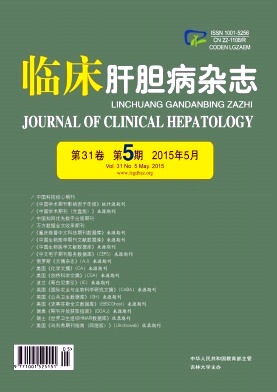Objective To investigate the acquired benefit of antiviral therapy in addition to routine treatment regimen including hepatoprotective internal medicine in patients with hepatitis B virus(HBV)-related end-stage hepatocellular carcinoma(HCC).Methods A total of 105 end-stage HCC patients who were admitted to our hospital from January 2011 to January 2012 with an initial diagnosis of hepatitis B cirrhosis were included in this study.According to the treatment regimen,the patients were divided into routine treatment group(group A) and antiviral therapy group(group B).Patients were followed up for 96 weeks,and the benefit of antiviral therapy was evaluated by comparison of Karnofsky score,Child-Push score,Model for End-Stage Liver Disease(MELD) score,and survival rate between two groups.Comparison of continuous data between groups was made by t test,and comparison of categorical data was made by χ2test.Prognostic analysis was made by Kaplan-Meier survival analysis.Results At week 24 of follow-up,patients in group B had markedly improved general status and liver function,significantly increased Karnofsky score(t = 4.785,P = 0.031),and significantly reduced Child-Push score(t = 5.015,P = 0.028) compared with those in group A.At week 96,the Karnofsky score,Child-Push score,and MELD score all showed significant improvements in group B compared with those in group A(t = 8.578,P = 0.016; t = 6.774,P = 0.021; t = 9.014,P =0.008).The patients in group B had a significantly higher survival rate than those in group A(67.2% vs 45.5%,P = 0.026).Conclusion Effective antiviral therapy in patients with HBV-related end-stage HCC could improve the quality of life and liver function,reduce complications,prolong the survival time,and thus bring great benefits to those patients.









 本站查看
本站查看




 DownLoad:
DownLoad: